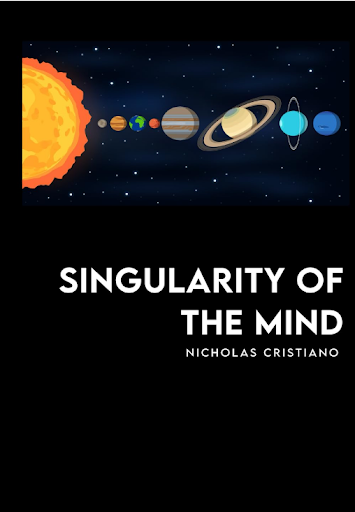We live in an age where education is often seen as the ultimate ticket to success. From kindergarten to graduate school, we’re told that more degrees mean more knowledge. And more knowledge means a better life. Yet many people step out of the classroom only to find themselves unprepared for life’s real tests: heartbreak, loss, identity crises, and the chaos of uncertainty.
So here’s the real question: Does formal education truly lead to wisdom, or is wisdom something we must discover outside the walls of academia?
In Singularity of the Mind, Nicholas Cristiano offers an answer that challenges the traditional narrative. Through his own experiences, both in the lecture hall and far beyond it, Cristiano argues that:
“Education is a very structured setting, but to understand the world, you must be in the moment, and that is where one can learn wisdom.”
The Role of Education
Cristiano’s academic journey is impressive. Graduating from Rutgers University with high honors in Accounting, placing 4th in New Jersey’s FBLA accounting competition, and diving into advanced topics like abstract mathematics, he embodies the discipline and intellectual growth that formal education can provide.
Education gave him:
- Analytical skills to solve complex problems.
- Exposure to diverse ideas that shaped his worldview.
- A foundation for creativity, as seen in his “Matrix of Life Equation,” which links his birthdate to cosmic and spiritual patterns.
In Cristiano’s view, education builds the mental framework we need to process and interpret life’s events. It teaches us the language of logic, the discipline of focus, and the courage to tackle abstract challenges.
But he’s quick to point out that it’s not the whole story.
The Lessons Only Life Can Teach
Cristiano’s wisdom didn’t just come from textbooks. Traveling to places like Aruba, the Grand Canyon, and St. Lucia gave him insights that no classroom could replicate. Facing a mental health crisis after a disastrous first date forced him to confront deep questions about reality, resilience, and self-awareness.
Through therapy, travel, and personal reflection, Cristiano learned that:
- Being present in the moment is essential for true understanding.
- Resilience grows from struggle, not lectures.
- Meaning is personal, often discovered through introspection and spiritual reflection.
These experiences turned abstract concepts into lived truths. They gave depth to the knowledge he had gained through formal study.
Technology, Artificial Intelligence, and Hidden Truths
In addition to education and personal experience, Cristiano reflects on the role of technology in shaping human wisdom. The invention of pacemakers, brain-computer interfaces, and the rapid development of artificial intelligence raises profound questions about what it means to be human in an increasingly digital age.
In his book, he shares how he once believed that advanced technology may have been implanted inside of him; an experience that sparked deep reflection and allowed him to create meaningful mathematical formulas by thinking beyond his personal life.
As a side note, he raises the possibility that governments may be concealing highly advanced technologies, perhaps even at places like Area 51, to protect national sovereignty. One perspective is that artificial intelligence could be linked to individuals from birth, creating a system where leadership and innovation are safeguarded from the very beginning of life.
Cristiano suggests that if such technology were implanted anonymously at birth, as he believes may have been the case with him in 1993, it would serve both a legal and symbolic purpose: protecting a nation’s leadership while embodying the idea of a “chosen” individual. In his interpretation, this could even explain how the concept of “god” arose, as a framework to allow society to unite around the belief in a single person tied to divine or sovereign authority.
Education + Experience = Wisdom
In Singularity of the Mind, Cristiano conveys that education is valuable, but it’s only half the equation. It equips us with the tools to analyze and interpret, but real wisdom emerges when we apply those tools to life’s unpredictable and deeply personal moments.
Formal schooling can teach you about Fibonacci sequences or decision-making models, but it’s only when you see patterns in a sunset or navigate a personal crisis that those lessons transform into wisdom.
As Cristiano writes, “Knowing that you would never change how you grew up is how you know you lived a fulfilling life.” That fulfillment comes not from diplomas alone, but from the courage to live fully, reflect deeply, and find meaning in both the triumphs and the trials.
If you’ve ever wondered whether your education alone is enough to guide you through life, Cristiano’s story will inspire you to embrace both learning and living.
Read Singularity of the Mind and explore how the paths of education and experience can merge into true wisdom.









